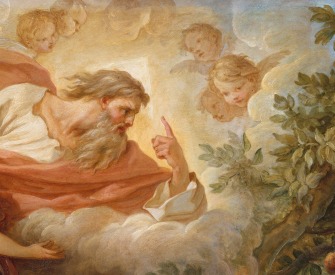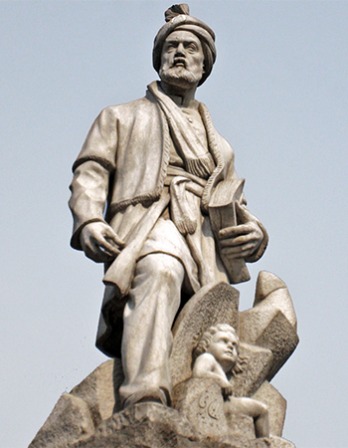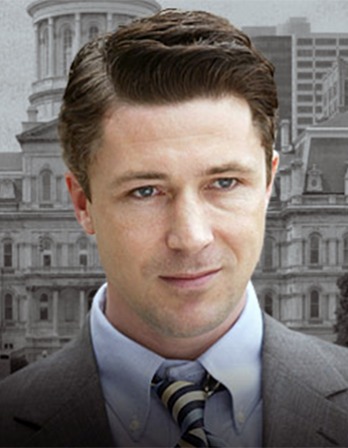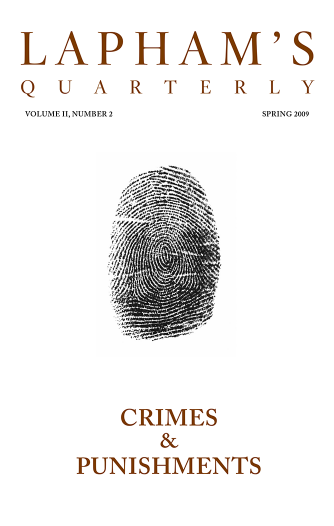[Enter Ferdinand King of Navarre, Berowne, Longaville, and Dumaine.]
Berowne: So much, dear liege, I have already sworn,
What is, to live and study here three years.
But there are other strict observances:
As not to see a woman in that term,
Which I hope well is not enrolled there;
And one day in a week to touch no food,
And but one meal on every day beside,
The which I hope is not enrolled there;
And then to sleep but three hours in the night,
And not be seen to wink of all the day
(When I was wont to think no harm all night
And make a dark night too of half the day),
Which I hope well is not enrolled there.
O, these are barren tasks, too hard to keep—
Not to see ladies, study, fast, not sleep.
King: Your oath is passed to pass away from these.
Berowne: Let me say no, my liege, an if you please.
I only swore to study with your grace
And stay here in your court for three years’ space.
Longaville: You swore to that, Berowne, and to the rest.
Berowne: By yea and nay, sir, then I swore in jest.
What is the end of study, let me know?
King: Why, that to know which else we should not know.
Berowne: Things hid and barred, you mean, from common sense?
King: Ay, that is study’s godlike recompense.
Berowne: Come on then, I will swear to study so,
To know the thing I am forbid to know,
As thus—to study where I well may dine
When I to feast expressly am forbid;
Or study where to meet some mistress fine
When mistresses from common sense are hid;
Or having sworn too hard-a-keeping oath,
Study to break it and not break my troth.
If study’s gain be thus, and this be so,
Study knows that which yet it doth not know.
Swear me to this, and I will ne’er say no.
King: These be the stops that hinder study quite,
And train our intellects to vain delight.
Berowne: Why, all delights are vain, but that most vain
Which, with pain purchased, doth inherit pain:
As, painfully to pore upon a book,
To seek the light of truth, while truth the while
Doth falsely blind the eyesight of his look.
Light seeking light doth light of light beguile;
So, ere you find where light in darkness lies,
Your light grows dark by losing of your eyes.
Study me how to please the eye indeed,
By fixing it upon a fairer eye,
Who dazzling so, that eye shall be his heed,
And give him light that it was blinded by.
Study is like the heaven’s glorious sun,
That will not be deep-searched with saucy looks:
Small have continual plodders ever won,
Save base authority from others’ books.
These earthly godfathers of heaven’s lights,
That give a name to every fixed star,
Have no more profit of their shining nights
Than those that walk and wot not what they are.
Too much to know is to know nought but fame;
And every godfather can give a name.
King: How well he’s read to reason against reading!
Dumaine: Proceeded well, to stop all good proceeding!
Longaville: He weeds the corn, and still lets grow the weeding.
Berowne: The spring is near, when green geese are a-breeding.
Dumaine: How follows that?
Berowne: Fit in his place and time.
Dumaine: In reason nothing.
Berowne: Something then in rhyme.
King: Berowne is like an envious sneaping frost
That bites the first-born infants of the spring.
Berowne: Well, say I am; why should proud summer boast
Before the birds have any cause to sing?
Why should I joy in any abortive birth?
At Christmas I no more desire a rose
Than wish a snow in May’s newfangled shows,
But like of each thing that in season grows.
So you, to study now it is too late,
Climb o’er the house to unlock the little gate.
King: Well, sit you out. Go home, Berowne. Adieu.
Berowne: No, my good lord, I have sworn to stay with you;
And though I have for barbarism spoke more
Than for that angel knowledge you can say,
Yet confident I’ll keep what I have sworn,
And bide the penance of each three years’ day.
Give me the paper, let me read the same,
And to the strict’st decrees I’ll write my name.
King: How well this yielding rescues thee from shame!
From Love’s Labor’s Lost. Composed around 1595 and performed for Elizabeth I at Christmas two years later, this comedy opens with the king of Navarre compelling three of his lords—Berowne, Longaville, and Dumaine—to pledge to study under him for three years, during which time they must remain celibate. “If we were to part with any of the author’s comedies, it should be this,” William Hazlitt wrote in 1817, more than two hundred years after the play had last been staged, “which we think savors more of the pedantic spirit of Shakespeare’s time than of his own genius.”
Back to Issue





